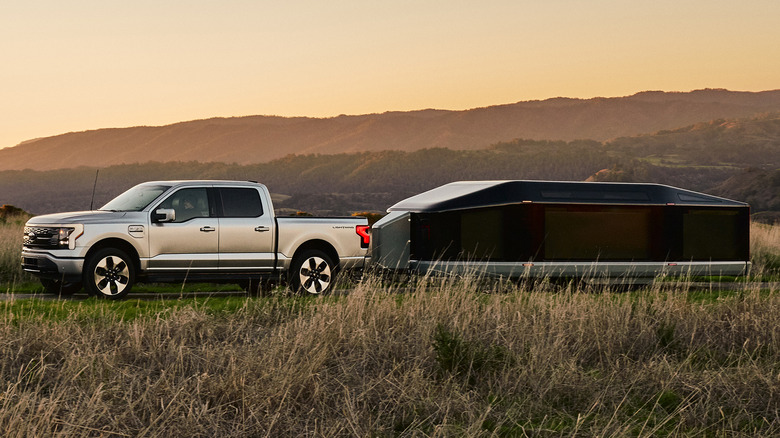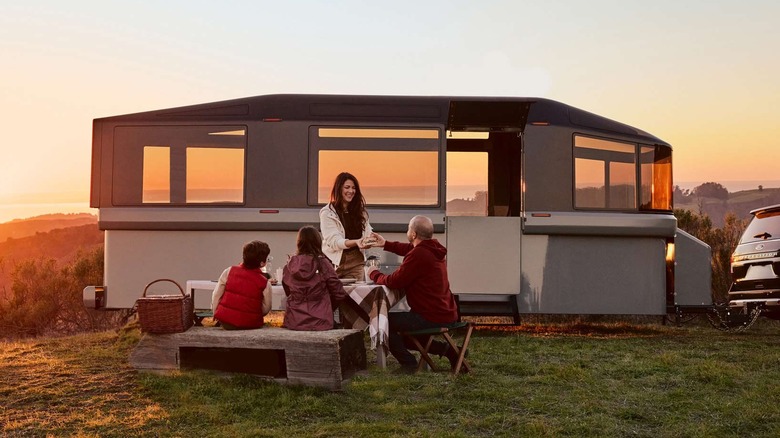Lightship's New L1 Electric Camper Is Built To Power Almost Anything, Including Your EV
All-electric trucks are one of the hottest segments of the automotive marketplace right now. Ford has already closed the order banks for its 2023 F-150 Lightning due to excessive demand, and competitor Ram sold out of its upcoming Ram 1500 Revolution pickup in less than one week. But one persistent criticism of electric trucks is how much their range decreases when towing a trailer — most famously illustrated by YouTuber Tyler Hoover, whose F-150 Lightning couldn't travel more than 100 miles while towing a 3500 pound trailer.
Leave it up to a couple of former Tesla employees to solve that problem (at least, for campers) with their new company called Lightship. As the story goes, Lightship co-founder Ben Parker was grabbing lunch from one of the food trucks outside a Tesla facility, where he was employed as a battery engineer. As Ben observed the gasoline or propane generators noisily powering the mobile kitchens — along with their associated pollution — the idea for an electric RV was born.
Not too long after Ben's "aha moment," fellow Tesla alum Toby Kraus was brought on board and the two partners embarked on a 6,000 mile galavant across the U.S. to speak with RV owners and learn about the industry in general. Being that over 70% of the recreational vehicles sold in 2021 were towable travel trailers, that's where Lightship decided to focus its efforts. Enter Lightship's debut product: the L1.
The L1 makes ICE trucks more efficient, too
While the ability to camp off the grid in generator-free, electrified solitude is undeniably appealing, what truly sets the L1 travel trailer apart is it's self-propulsion system. Powered by a 40 kWh (or optional 80 kWh) onboard battery, the L1's electric powertrain is capable of propelling itself a distance of up to 300 miles to help reduce drag on the tow vehicle. Not only does this greatly reduce the loss of range experienced when towing heavy loads with an electric truck, but it increases the fuel economy of gasoline or diesel powered tow vehicles, too.
The Lightship L1 is fairly large at 27 feet long and 8.5 feet wide. However, the company claims that it's significantly more aerodynamic than traditional travel trailers. For example, the height reduces from 10 feet while camping, down to 6 feet, 9 inches for towing. Although "pop-up" trailers are nothing new to the camping world, the L1's execution is quite elegant. The pop-up section is rigid, not fabric, and is full of panoramic windows to bring nature inside.
Depending on how the L1 is configured, it can sleep between four and six people. The onboard batteries are assisted by up to 3 kW of roof-mounted solar power and, according to Lightship, can support the electrical needs of up to seven days worth of camping.
Pricing for the electric travel trailers start at $125,000 (before tax credits). While not exactly inexpensive, that figure is in line with other premium brands such as Airstream, which don't have as much technology. Production of the L1 is expected to begin in late-2024, but customers can reserve theirs now by placing a $500 deposit at lightshiprv.com.

